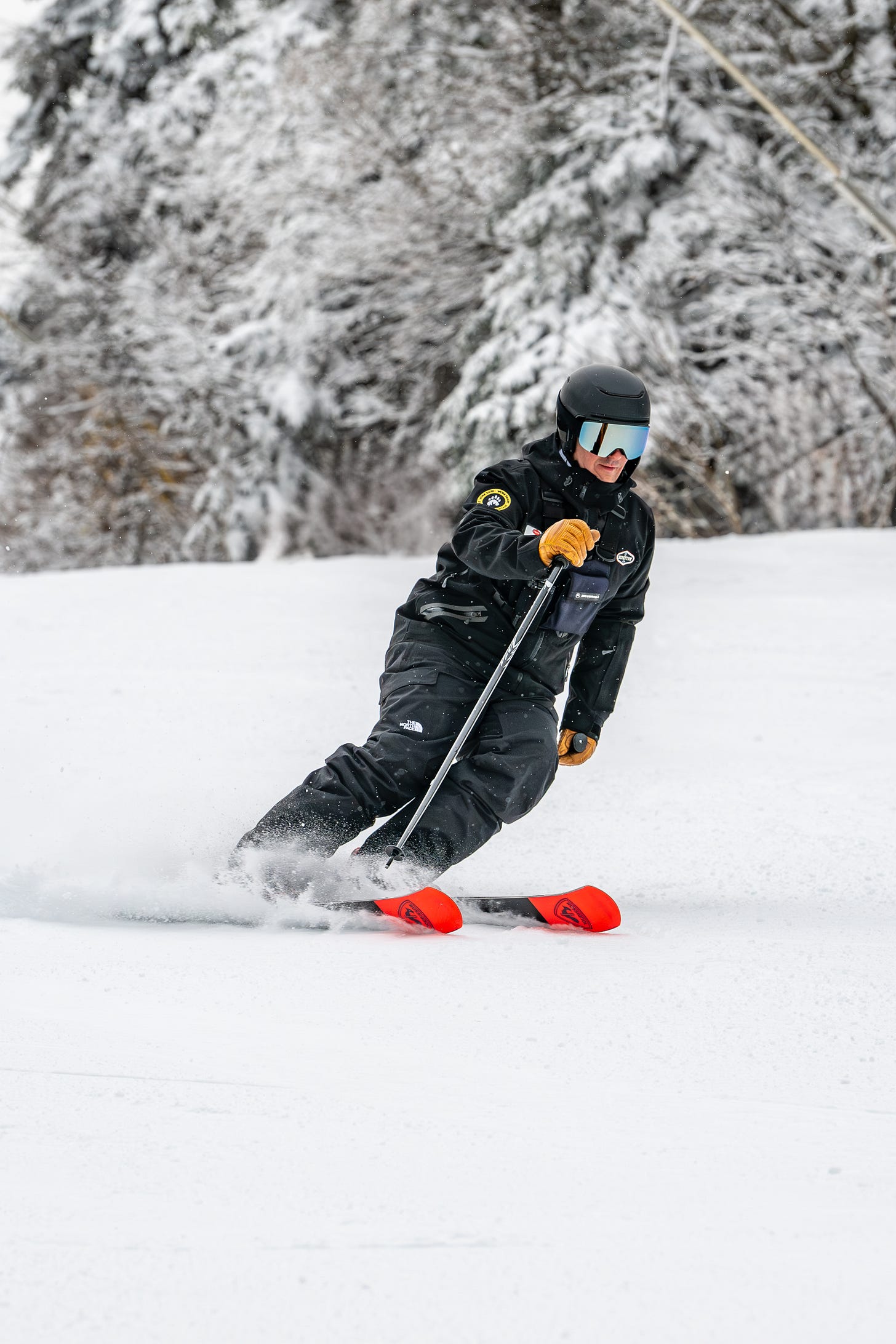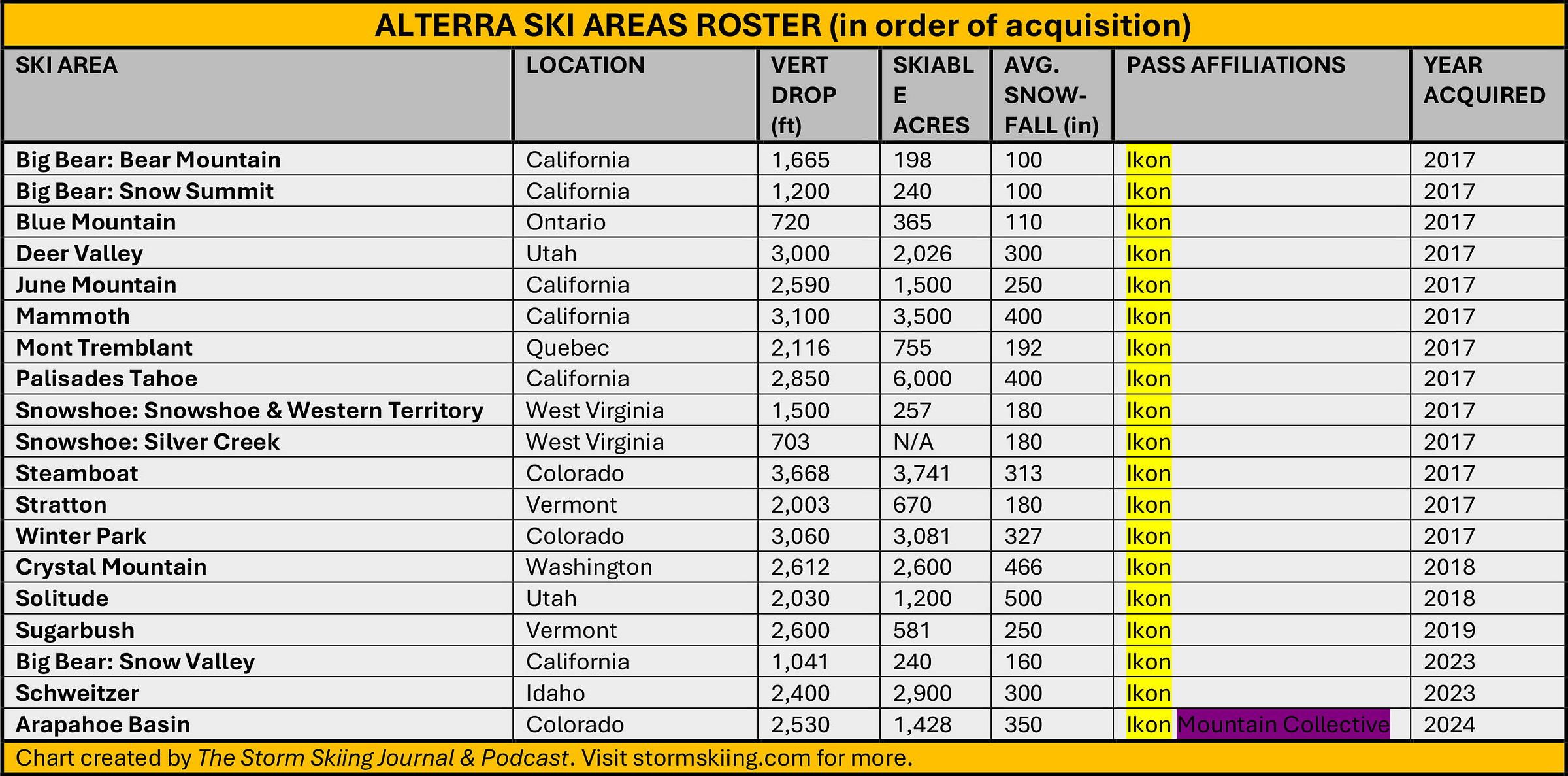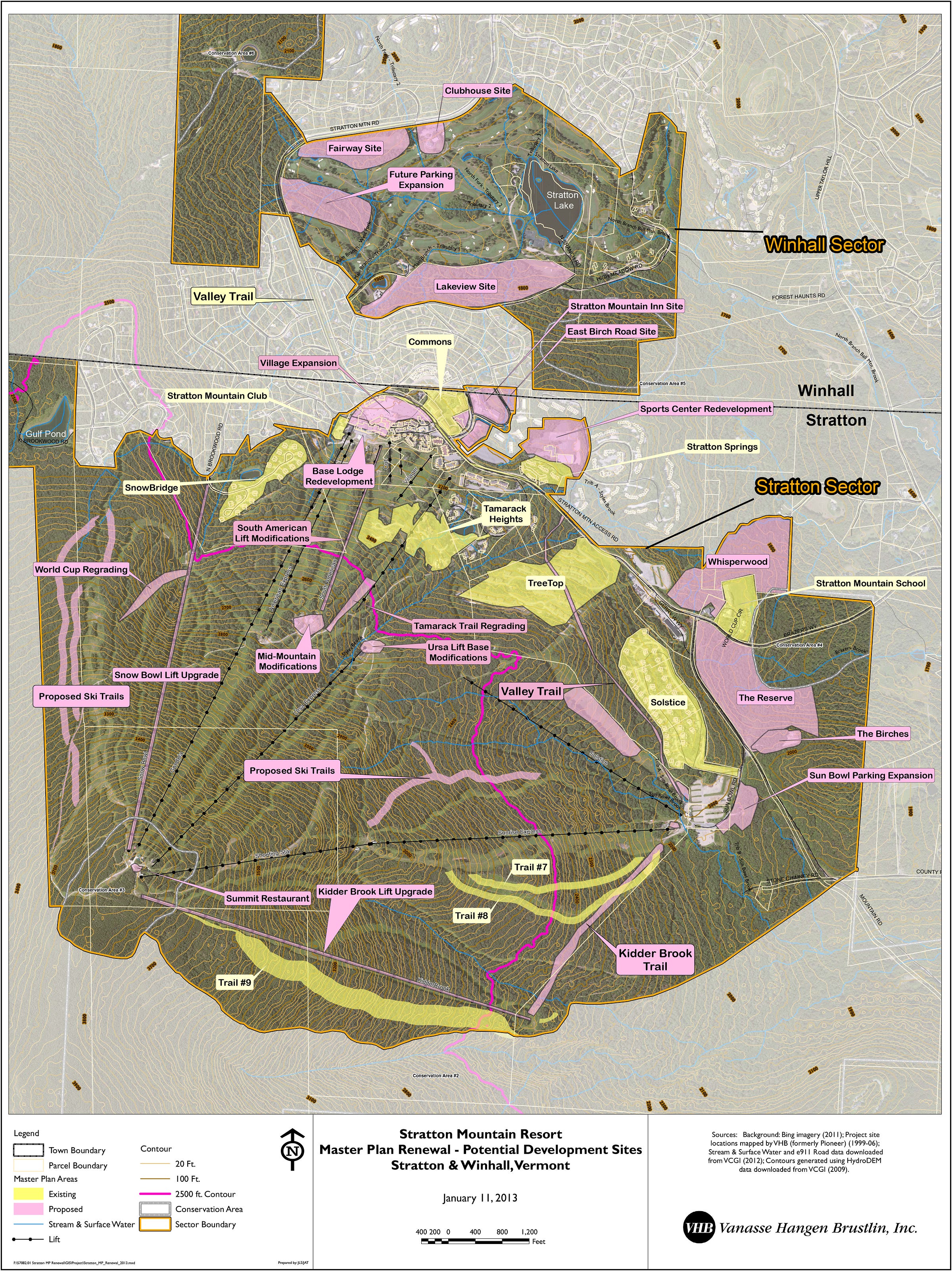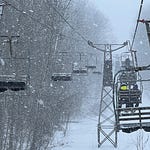Who
Matt Jones, President and Chief Operating Officer of Stratton Mountain, Vermont
Recorded on
November 11, 2024
About Stratton Mountain
Click here for a mountain stats overview
Owned by: Alterra Mountain Company, which also owns:
Located in: Winhall, Vermont
Year founded: 1962
Pass affiliations:
Ikon Pass: Unlimited
Ikon Base Pass: Unlimited, holiday blackouts
Closest neighboring ski areas: Bromley (:18), Magic (:24), Mount Snow (:28), Hermitage Club (:33), Okemo (:40), Brattleboro (:52)
Base elevation: 1,872 feet
Summit elevation: 3,875 feet
Vertical drop: 2,003 feet
Skiable Acres: 670
Average annual snowfall: 180 inches
Trail count: 99 (40% novice, 35% intermediate, 16% advanced, 9% expert)
Lift count: 14 (1 ten-passenger gondola, 4 six-packs, 1 high-speed quad, 2 fixed-grip quads, 1 triple, 1 double, 4 carpets – view Lift Blog’s inventory of Stratton’s lift fleet)
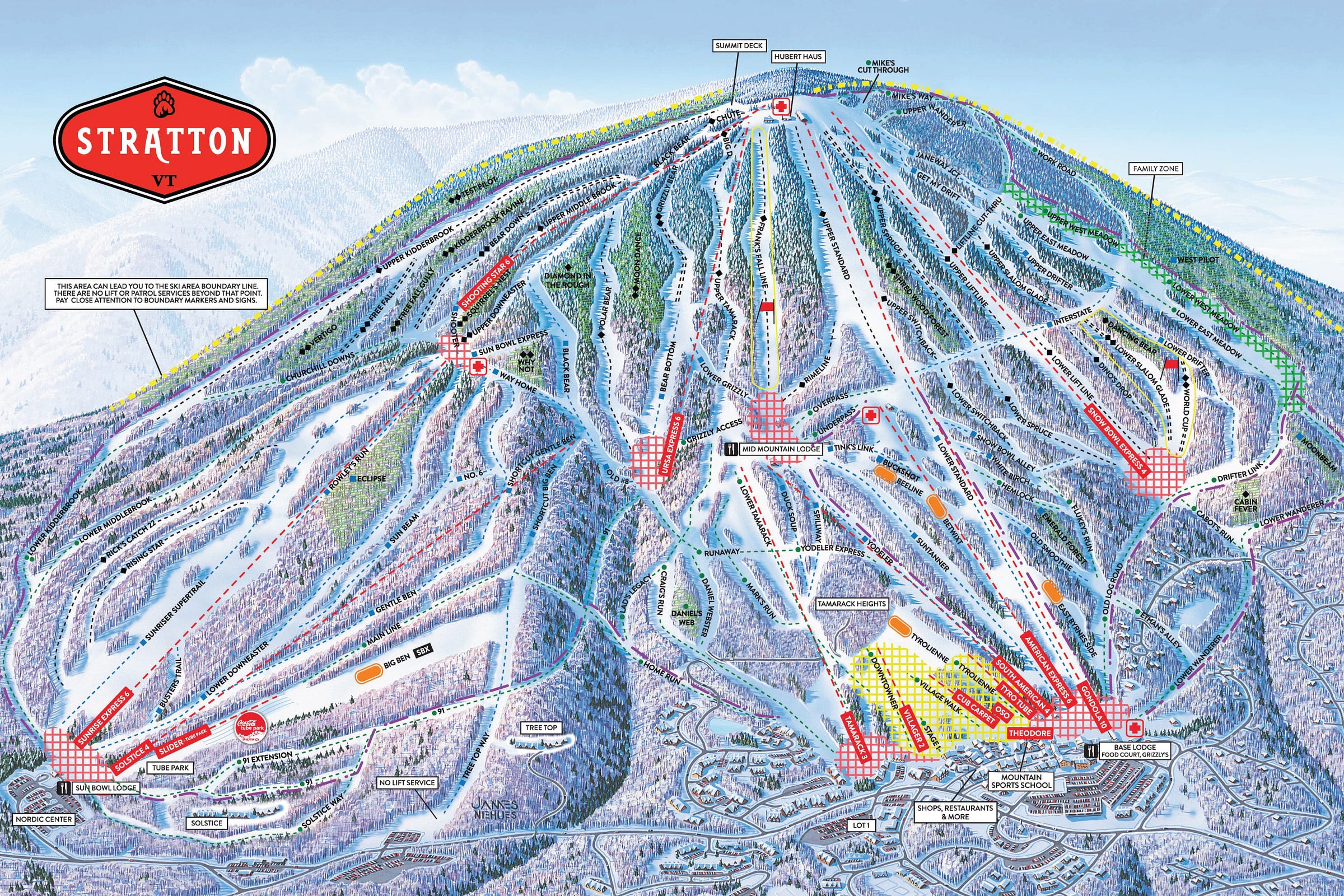
Why I interviewed him
I don’t know for sure how many skier visits Stratton pulls each winter, or where the ski area ranks among New England mountains for busyness. Historical data suggests a floor around 400,000 visits, likely good for fifth in the region, behind Killington, Okemo, Sunday River, and Mount Snow. But the exact numbers don’t really matter, because the number of skiers that ski at Stratton each winter is many manys. And the number of skiers who have strong opinions about Stratton is that exact same number.
Those numbers make Stratton more important than it should be. This is not the best ski area in Vermont. It’s not even Alterra’s best ski area in Vermont. Jay, MRG, Killington, Smuggs, Stowe, and sister resort Sugarbush are objectively better mountains than Stratton from a terrain point of view (they also get a lot more snow). But this may be one of the most crucial mountains in Alterra’s portfolio, a doorway to the big-money East, a brand name for skiers across the region. Stratton is the only ski area that advertises in the New York City Subway, and has for years.
But Stratton’s been under a bit of stress. The lift system is aging. The gondola is terrible. Stratton was one of those ski areas that was so far ahead of the modernization curve – the mountain had four six-packs by 2001 – that it’s now in the position of having to update all of that expensive stuff all at once. And as meaningful updates have lagged, Stratton’s biggest New England competitors are running superlifts up the incline at a historic pace, while Alterra lobs hundreds of millions at its western megaresorts. Locals feel shafted, picketing an absentee landlord that they view as negligent. Meanwhile, the crowds pile up, as unlimited Ikon Pass access has holstered the mountain in hundreds of thousands of skiers’ wintertime battle belts.
If that all sounds a little dramatic, it only reflects the messages in my inbox. I think Alterra has been cc’d on at least some of those emails, because the company is tossing $20 million at Stratton this season, a sum that Jones tells us is just the beginning of massive long-term investment meant to reinforce the mountain’s self-image as a destination on its own.
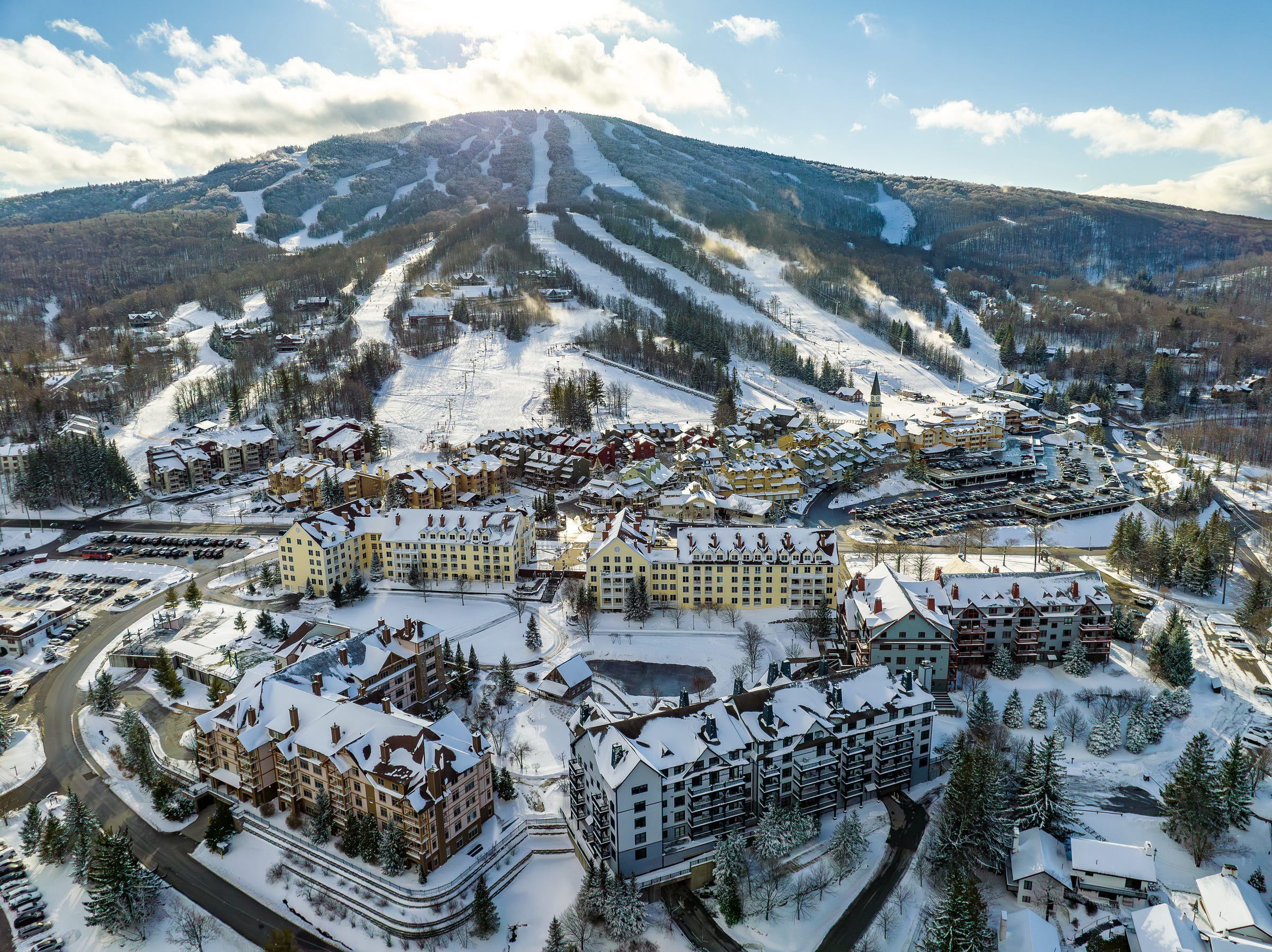
What we talked about
Stratton’s $20 million offseason; Act 250 masterplanning versus U.S. Forest Service masterplanning; huge snowmaking upgrades and aspirations; what $8 million gets you in employee housing these days; big upgrades for the Ursa and American Express six-packs; a case for rebuilding lifts rather than doing a tear-down and replace; a Tamarack lift upgrade; when Alterra’s investment firehose could shift east; leaving Tahoe for Vermont; what can be done about that gondola?; the Kidderbrook lift; parking; RFID; Ikon Pass access levels; and $200 to ski Stratton.
Why I thought that now was a good time for this interview
How pissed do you think the Punisher was when Disney announced that Ant Man would be the 12th installment in Marvel’s cinematic universe? I imagine him seated in his lair, polishing his grenades. “Fucking Ant Man?” He throws a grenade into one of his armored Jeeps, which disintegrates in a supernova of steel parts, tires, and smoke. “Ant Man. Are you fucking serious with this? I waited through eleven movies. Eleven. Iron Man got three. Thor and Captain fucking America got two apiece. The Hulk. Two Avengers movies. Something called ‘Guardians of the Galaxy,’ about a raccoon and a talking tree that save the goddamn universe or some shit. And it was my turn, Man. My. Turn. Do these idiots not know that I had three individual comic lines published concurrently in the 1990s? Do they not know that I’m ranked as the ninth-greatest Marvel superhero of all time on this nerd list? Do you know where Ant Man is ranked on that list? Huh? Well, I’ll tell you: number 131, behind Rocket Raccoon, U-Go Girl, and Spider Man 2099, whatever the hell any of those are.” The vigilante then loads his rocket launcher and several machine guns into a second armored Jeep, and sets off in search of jaywalkers to murder.
Anyway I imagine that’s how Stratton felt as it watched the rest of Alterra’s cinematic universe release one blockbuster after another. “Oh, OK, so Steamboat not only gets a second gondola, but they get a 600-acre terrain expansion served by their eighth high-speed quad? And it wasn’t enough to connect the two sides of Palisades Tahoe with a gondola, but you threw in a brand-new six-pack? And they’re tripling the size of Deer Valley. Tripling. 3,700 acres of new terrain and 16 new lifts and a new base village to go with it. That’s equal to five-and-a-half Strattons. And Winter Park gets a new six-pack, and Big Bear gets a new six-pack, and Mammoth gets two. Do you have any idea how much these things cost? And I can’t even get a gondola that can withstand wind gusts over three miles per hour? Even goddamn Snowshoe – Snowshoe – got a new lift before I did. I didn’t even think West Virginia was actually a real place. I swear if these fuckers announce a new June Mountain out-of-base lift before I get my bling, things are gonna get Epic around here.”
Well, it’s finally Stratton’s turn, with $20 million in upgrades inbound. Alterra wasn’t exactly mining the depths of locals’ dreams to decide where to deploy the cash – snowmaking, employee housing, lift overhauls – and a gondola replacement isn’t coming anytime soon, but they’re pretty smart investments when you dig into them. Which we do.
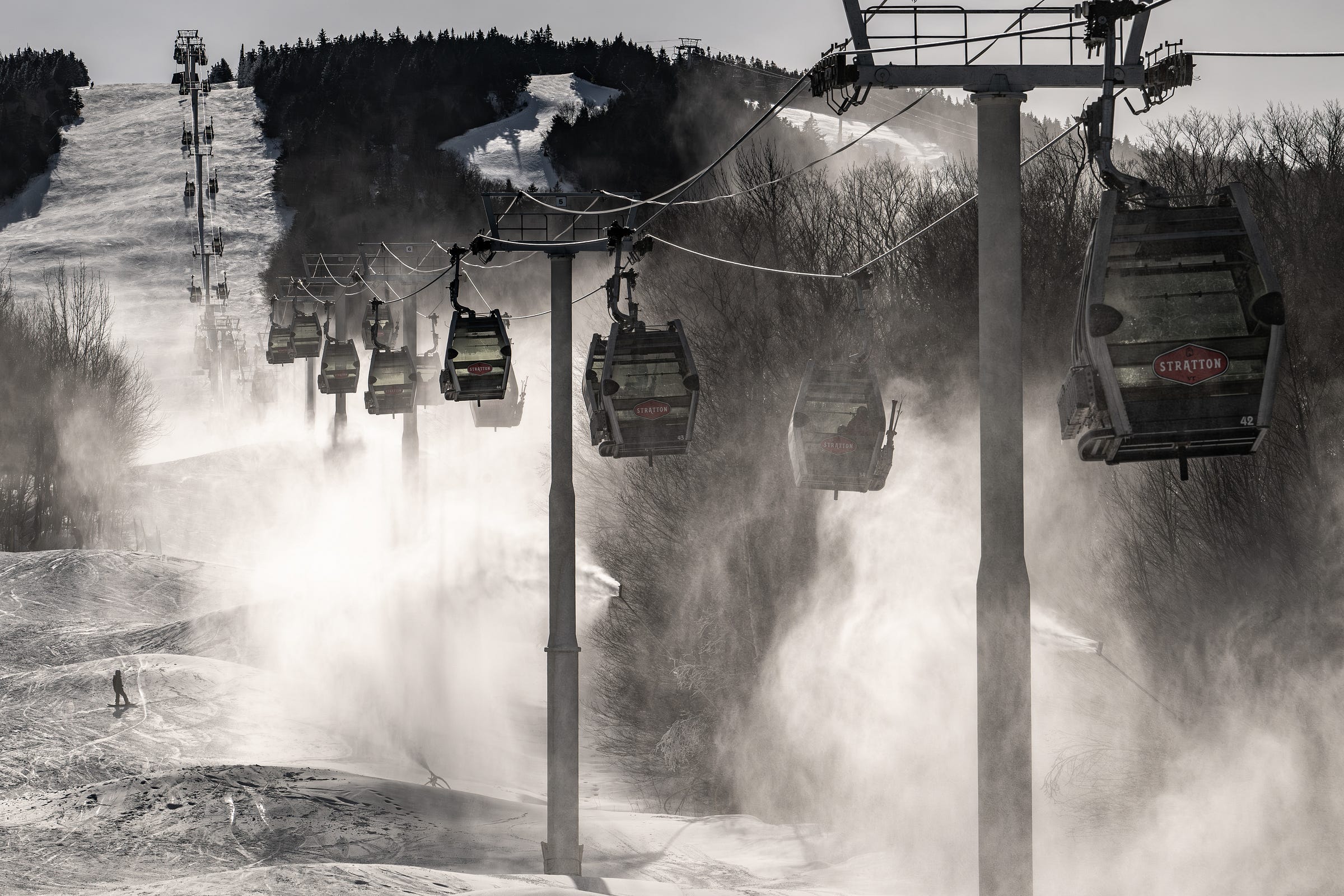
Questions I wish I’d asked
Among the items that I would have liked to have discussed given more time: the Appalachian Trail’s path across the top of Stratton Mountain, Stratton as birthplace of modern snowboarding, and the Stratton Mountain School.
What I got wrong
I said that Epic Pass access had remained mostly unchanged for the past decade, which is not quite right. When Vail first added Stowe to the Epic Local Pass for the 2017-18 season, they slotted the resort into the bucket of 10 days shared with Vail, Beaver Creek, and Whistler. At some point, Stowe received its own basket of 10 days, apart from the western resorts.
I said that Sunday River’s Jordan eight-pack was wind-resistant “because of the weight.” While that is one factor, the lift’s ability to run in high winds relies on a more complex set of anti-sway technology, none of which I really understand, but that Sunday River GM Brian Heon explained on The Storm earlier this year:
Why you should ski Stratton
A silent skiing demarcation line runs roughly along US 4 through Vermont. Every ski area along or above this route – Killington, Pico, Sugarbush, Mad River Glen, Stowe, Smuggs – lets trails bump up, maintains large glade networks, and generally provides you with balanced, diverse terrain. Everything below that line – Okemo, Bromley, Mount Snow – generally don’t do any of these things, or offer them sporadically, and in the most shrunken form possible. There are some exceptions on both sides. Saskadena Six, a bump just north of US 4, operates more like the Southies. Magic, in the south, better mirrors the MRG/Sugarbush model. And then there’s Stratton.
Good luck finding bumps at Stratton. Maybe you’ll stumble onto the remains of a short competition course here or there, but, generally, this is a groom-it-all-every-day kind of ski area. Which would typically make it a token stop on my annual rounds. But Stratton has one great strength that has long made it a quasi-home mountain for me: glades.
The glade network is expansive and well-maintained. The lines are interesting and, in places, challenging. You wouldn’t know this from the trailmap, which portrays the tree-skiing areas as little islands lodged onto Stratton’s hulk. But there are lots of them, and they are plenty long. On a typical pow day, I’ll park at Sun Bowl and ski all the glades from Test Pilot over to West Pilot and back. It takes all day and I barely touch a groomer.
And the glades are open more often than you’d think. While northern Vermont is the undisputed New England snow king, with everything from Killington north counting 250-plus inches in an average winter, the so-called Golden Triangle of Stratton, Bromley, and Magic sits in a nice little micro-snow-pocket. And Stratton, the skyscraping tallest peak in that region of the state, devours a whole bunch (180 inches on average) to fill in those glades.
And if you are Groomer Greg, you’re in luck: Stratton has 99 of them. And the grooming is excellent. Just start early, because they get scraped off by the NYC hordes who camp out there every weekend. The obsessive grooming does make this a good family spot, and the long green trail from the top down to the base is one of the best long beginner runs anywhere.
Podcast Notes
On Act 250
This is the 20th Vermont-focused Storm Skiing Podcast, and I think we’ve referenced Act 250 in all of them. If you’re unfamiliar with this law, it is, according to the official state website:
…Vermont’s land use and development law, enacted in 1970 at a time when Vermont was undergoing significant development pressure. The law provides a public, quasi-judicial process for reviewing and managing the environmental, social and fiscal consequences of major subdivisions and developments in Vermont. It assures that larger developments complement Vermont’s unique landscape, economy and community needs. One of the strengths of Act 250 is the access it provides to neighbors and other interested parties to participate in the development review process. Applicants often work with neighbors, municipalities, state agencies and other interested groups to address concerns raised by a proposed development, resolving issues and mitigating impacts before a permit application is filed.
On Stratton’s masterplan
Stratton is currently updating its masterplan. It will retain some elements of this 2013 version. Some elements of this – most notably a new Snow Bowl lift in 2018 – have been completed:
One curious element of this masterplan is the proposed lift up the Kidderbrook trail – around 2007, Stratton removed a relatively new (installed 1989) Poma fixed-grip quad from that location. Here it is on the far left-hand side of the 2005 trailmap:
On Stratton’s ownership history
Stratton’s history mirrors that of many large New England ski areas: independent founders run the ski area for decades; founders fall into financial peril and need private equity/banking rescue; bank sells to a giant out-of-state conglomerate; which then sells to another giant out-of-state conglomerate; which eventually turns into something else. In Stratton’s case, Robert Wright/Frank Snyder -> Moore and Munger -> Japanese company Victoria USA -> Intrawest -> Alterra swallows the carcass of Intrawest. You can read all about it on New England Ski History.
Here was Intrawest’s roster, if you’re curious:
On Alterra’s building binge
Since its 2018 founding, Alterra has invested aggressively in its properties: a 2.4-mile-long, $65 million gondola connecting Alpine Meadows to the Olympic side of Palisades Tahoe; $200 million in the massive Mahogany Ridge expansion and a three-mile-long gondola at Steamboat; and an untold fortune on Deer Valley’s transformation into what will be the fourth-largest ski area in the United States. Plus new lifts all over the place, new snowmaking all over the place, new lodges all over the place. Well, all over the place except for at Stratton, until now.
On Boyne and Vail’s investments in New England
Amplifying Stratton Nation’s pain is the fact that Alterra’s two big New England competitors – Vail Resorts and Boyne Resorts – have built a combined 16 new lifts in the region over the past five years, including eight-place chairs at Loon and Sunday River (Boyne), and six-packs at Stowe, Okemo, and Mount Snow (Vail). They’ve also replaced highly problematic legacy chairs at Attitash (Vail) and Pleasant Mountain (Boyne). Boyne has also expanded terrain at Loon, Sunday River, and, most notably – by 400 acres – Sugarloaf. And it’s worth noting that independents Waterville Valley and Killington have also dropped new sixers in recent years (Killington will build another next year). Meanwhile, Alterra’s first chairlift just landed this summer, at Sugarbush, which is getting a fixed-grip quad to replace the Heaven’s Gate triple.
On gondola wind holds
Just in case you want to blame windholds on some nefarious corporate meddling, here’s a video I took of Kirkwood’s Cornice Express spinning in 50-mile-per-hour winds when Jones was running the resort last year. Every lift has its own distinct profile that determines how it manages wind.
On shifting Ikon Pass access
When Alterra launched the Ikon Pass in 2018, the company limited Base Pass holders to five days at Stratton, with holiday blackouts. Ahead of the 2020-21 season, the company updated Base Pass access to unlimited days with those same holiday blackouts. Alterra and its partners have made several such changes in Ikon’s seven years. I’ve made this nifty chart that tracks them all (if you missed the memo, Solitude just upgraded Ikon Base pass access to eliminate holiday blackouts):
On historic Stratton lift ticket prices
Again, New England Ski History has done a nice job documenting Stratton’s year-to-year peak lift ticket rates:

The Storm publishes year-round, and guarantees 100 articles per year. This is article 76/100 in 2024, and number 576 since launching on Oct. 13, 2019.




